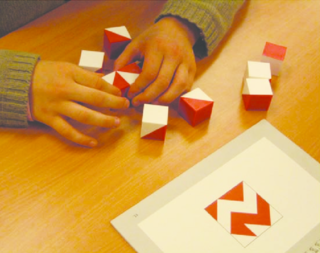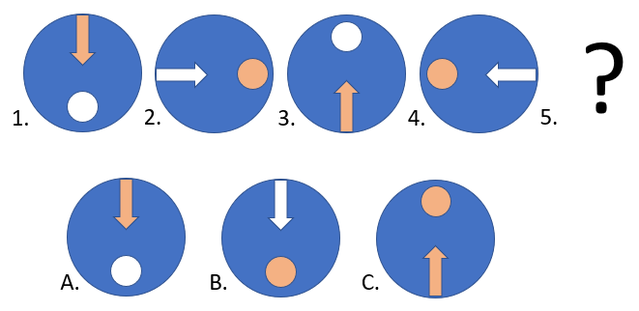Intelligence
3 Myths About Fluid Intelligence
Performance on specific tasks is not a good measure of fluid intelligence.
Posted September 20, 2019 Reviewed by Devon Frye

Despite dating back to the 1960s, the distinction between fluid and crystalized intelligence—originally proposed by personality psychologist Raymond B. Cattell—is still a hot topic of discussion both in academia and in popular culture. By drawing this distinction, Cattell took issue with the theory that there is only one form of intelligence.
According to Cattell, fluid intelligence is the ability to use generalized intellectual skills, such as math, deduction, induction, hypothesis-formation, abstract thinking, analytical skills, pattern recognition, imagination, visualization, and moral intuition to solve new problems.
Crystallized intelligence, by contrast, is the ability to use knowledge that was previously acquired through perceptual experience, education, readings, pictures, movies, audio programs, conversations, reasoning, or intuition. Previously acquired knowledge falls into three broad kinds:
- Factual Knowledge: Also somewhat misleadingly known as “semantic knowledge,” this is a “Trivial Pursuit” type of knowledge—that is, readily available knowledge of facts. Examples: “The U.S. Constitution was ratified in 1789”; “Gold has atom number 79”; “The emotion word ‘Schadenfreude’ is a loan word”; or “The word ‘scrupulous’ means ‘a person who is diligent, thorough, or extremely attentive to details’ or ‘a person who is preoccupied with avoiding mistakes.’”
- Episodic Memory Recall: This type of knowledge is knowledge of your past acquired through first-person experiences. Examples: “I had a headache this morning before eating breakfast”; “I was so scared when my mom called me to tell me about the terrorist attacks on September 11, 2001"; "I was walking through the forest, when a bear suddenly jumped out from a bush."
- Specialized Procedural Knowledge: Also known as “knowledge-how,” specialized procedural knowledge is practical knowledge in an area of competence—that is, an area in which you have some level of expertise. Examples: knowledge of how to change a tire, knowledge of how to ride a bicycle, knowledge of how to cook chicken tikka masala.
Despite the distinction between fluid and crystalized intelligence being fairly well-defined, countless myths about the two types of intelligence continue to pervade popular culture. Here are three of the most common misunderstandings regarding this distinction:
Myth 1: When we use fluid intelligence, we aren’t relying on any pre-existing knowledge.
The Truth: We very often rely on previously acquired knowledge when using fluid intelligence. Imagine you work in HR in a large company. At a staff meeting, your boss throws the following complex open question at you and your colleagues:
Boss: "The $2 million annual budget cut requested by the board leaves us with no choice but to lay off employees. How do we go about this? Should we lay off the most recent hires? Those closest to retirement? The lowest paid workers? Higher-paid employees? What do you think?”
This open-ended question is a prototypical example of a new problem that can only be solved by using fluid intelligence. But you cannot solve it without relying on pre-existing knowledge. Consider some of the HR staff members' responses:
Al: Well, the most recent hires were the three headhunted R&D Directors. That’s not gonna fly.
Bo: We can’t lay off the lowest paid workers. Even if we laid off all of them, the money we saved wouldn’t add up to $2 million annually.
Cy: I can see here that five of our Associate Directors are over what I would consider a reasonable retirement age of 75. If we offer them a generous retirement package, most of them are likely to volunteer. Actually, we would only need three of them to take the offer.
Al, Bo, an Cy do not rely solely on abstract thinking, math, deduction, induction, hypothesis-formation, pattern recognition, or the like. Al’s reply is based on factual knowledge about the most recent hires. Bo’s response depends on factual knowledge about the lowest paid workers. And Cy’s response is based on factual knowledge about the Associate Directors. Presumably, their answers are also based on factual knowledge about company policies and conventions.
Myth 2: Because your fluid intelligence tends to decline with age, so does your ability to solve new problems.
The Truth: Fluid intelligence does indeed tend to decline as we age, starting when we are in our early 20s. You can delay the decline by regularly solving different types of novel complex problems. But the available evidence does not suggest that you can reliably improve your fluid intelligence. Crystallized intelligence, however, typically improves as we age, until it eventually starts deteriorating when we get very old.
However, our ability to solve novel problems does not decline at a similar rate as our fluid intelligence. Older adults are often more adept at using accumulated knowledge and expertise, which can compensate for the decline in fluid intelligence when solving new problems.
In the company scenario above, for example, your older coworkers—who have a lot of experience with different types of situations that can arise in a company—are likely to be much better problem-solvers than the young interns or the assistants hired right out of college.
Myth 3: Tests of fluid intelligence largely avoid the cultural biases afflicting tests of crystalized intelligence.
The Truth: It is hard to test fluid intelligence as such, because it can be manifested in so many different ways. A good jazz musician improvising is using fluid intelligence. So is a mathematician who has her mind set on proving Goldbach's Conjecture (every even number greater than 2 is the sum of two primes). And so is a homeless person hitting on a new way to stay warm at night.

Current tests of fluent intelligence are only capable of measuring how fluidly you use particular problem-solving strategies, such as perceptual reasoning or recognizing a visually presented pattern.
The perceptual reasoning component of the Wechsler IQ test, for example, asks you to turn a two-dimensional figure into a three-dimensional one with blocks. Your score doesn't reflect your fluid intelligence as such, however. It only reflects how fluidly you can mentally manipulate shapes presented to you visually.
Similar remarks apply to the pattern-recognition component of the Wechsler IQ test. Here you are shown a pattern and asked to determine what comes next.
Here is a sample question (the questions get harder and harder the further you progress):
The four images in the top row below are the beginning of a pattern. Which item of A, B, or C would be the fifth image in this pattern?

Scoring high on this kind of pattern recognition task reflects high fluid intelligence for visual pattern recognition. But it doesn't even tell you anything about your pattern recognition skills in general. A low score on the visual pattern recognition task doesn't reflect auditory or tactile pattern recognition. So, even if you are very bad at recognizing patterns visually, you may well excel in recognizing patterns through other sensory modalities, for example, patterns in music (using your sense of hearing), or patterns of dots or textures (using your sense of touch).
As culture has a strong influence on which types of fluid intelligence is common in those who have been exposed to the culture for long periods of time, tests of fluid intelligence do not circumvent cultural bias.




